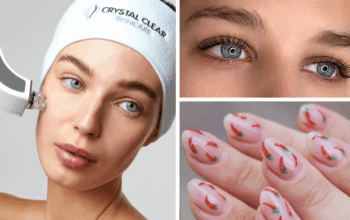Identifying and treating postpartum depression

There are several issues that can arise when women are expecting their first child, but not many talk about the after-effects of childbirth. For millions, postpartum depression, also known as postnatal depression, wreaks havoc on a new mother’s mental health. Men may also get postpartum depression, along with new adoptive parents, as there is no singular cause for developing the condition. It is estimated that one in every ten new mothers experiences the mental health anguish of postnatal depression or anxiety, yet the topic is not widely discussed among parents, their family members, or members of the medical community.
Postpartum depression and other related mental health issues related to bringing a new child into the world may develop shortly after a child arrives in a household, or they may take weeks or months to appear. Regardless of when the issue arises, postpartum depression looks different for every new parent. However, the condition can be devastating to the parent, the child, and surrounding friends and family. For new moms and dads, biological or adoptive, recognising the warning signs is the first step in getting the proper diagnosis and ultimately, the best treatment.
The warning signs
It is common for people to think of postpartum depression as simply the baby blues – a temporary condition that may make a new parent feel weepy, tired, or anxious for a few hours at a time. The reality is that postnatal mental health issues may have a slow onset, and they typically last for several weeks up to several months if not years. The symptoms of postpartum depression and anxiety are similar to the more common baby blues, including the following warning signs:
- Persistent negative thoughts, even of suicide or harming the child
- Anxiety that will not subside
- Having no ability to bond with the child
- Little enjoyment in spending time with the child or others
- Constant feeling of being sad or lonely
- Extreme worry regarding a child’s health and well-being
- Extreme exhaustion or fatigue
- Irritability and tearfulness that does not go away
In addition to these common warning signs, men or women with postnatal depression may also suffer from panic attacks, headaches or blurred vision, a loss of appetite, or a reduced sex drive. In the most severe cases, new parents may also develop extreme anxiety, obsessive-compulsive disorder, or post-traumatic stress disorder. Any combination of these feelings requires immediate attention from a doctor, although that is not always as easy as it may seem.
Why misdiagnosis is common
For generations, we have been taught to say issues of mental health carry a stigma that has been difficult to break. Even though medical professional and the general population have a better awareness that mental health conditions are common, postpartum depression still takes time to diagnose. This stigma is partly to blame for misdiagnosis among both men and women with postpartum depression. However, there are other factors at play as well.
Because new parents feel as though they should be overjoyed at the birth or adoption of a new child, they are often slow to report any of the warning signs of postnatal depression to their doctor. They may feel shame surrounding their depression or anxiety, or they may think their symptoms are fleeting. Adding to the issue of misdiagnosis is the fact that nearly all doctors are mainly focused on the well-being of the child at follow up visits, not necessarily the parents. Unless the mother or father speaks up about mental health concerns, they are not likely to receive a diagnosis of postpartum depression quickly. Getting the right diagnosis requires diligence on behalf of the parent, his or her partner, and loved ones, along with medical professionals working with children and new parents consistently.
Getting the right treatment
The good news is that postnatal depression, anxiety, and other related mental health conditions can be treated once properly diagnosed. In most cases, doctors are quick to offer talk therapy as a method to help with feelings of sadness or loneliness as a new parent. This type of therapy alongside a renewed focus at home to put energy into positive activities and time with the child are known to greatly reduce postpartum depression in some men and women. However, when this course of treatment does not help eliminate symptoms, antidepressants may be prescribed.
While therapy and medication may be beneficial to some new parents with postpartum depression, studies show that support from a spouse, friend, or family member can make a world of difference. Individuals may offer to care for the child for a period of time to give some relief to the new parent, or they may provide their ear to listen or a shoulder to cry on. Loved ones of those with postpartum depression also have several resources for support groups for themselves along with the individual living with the mental health condition. The combination of these support tactics is beneficial when postnatal depression or anxiety is present in a new parent’s life.
The editorial unit

























Facebook
Twitter
Instagram
YouTube
RSS